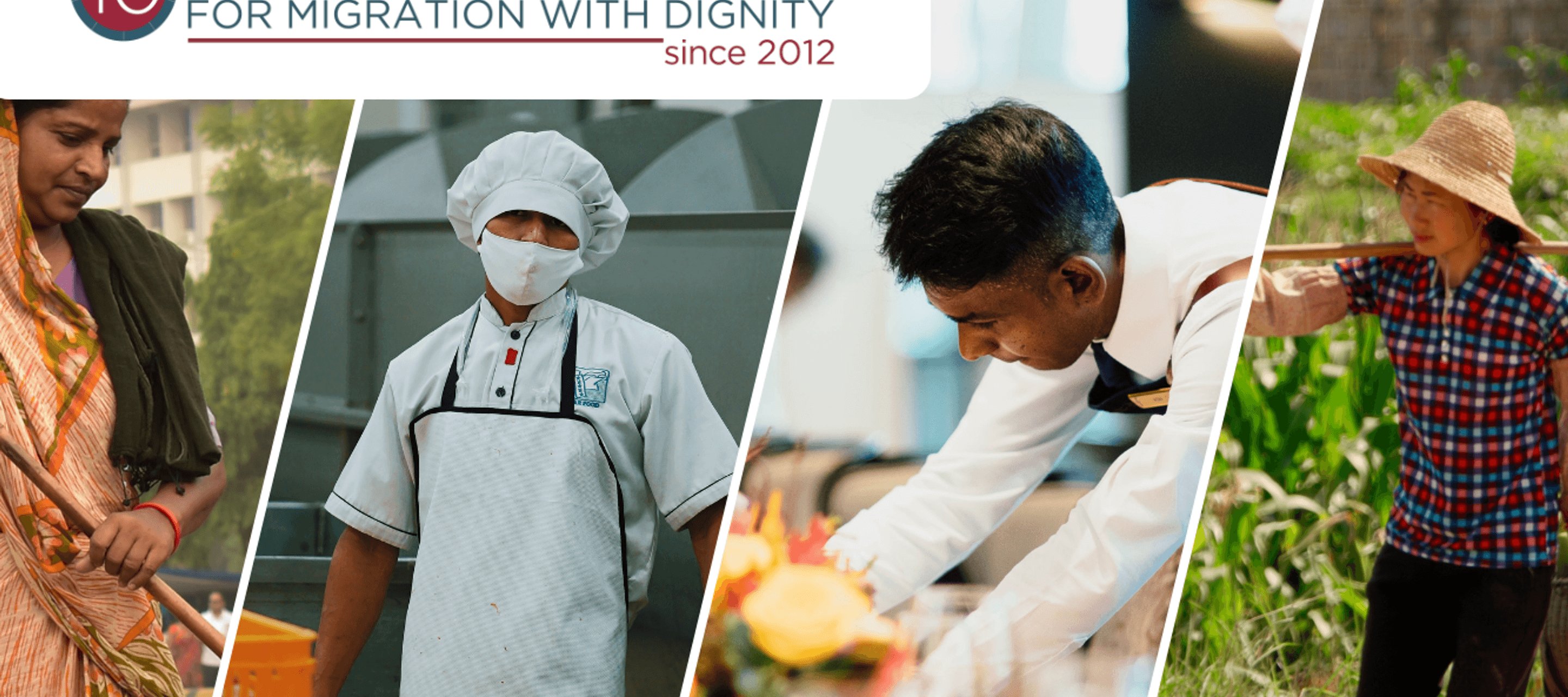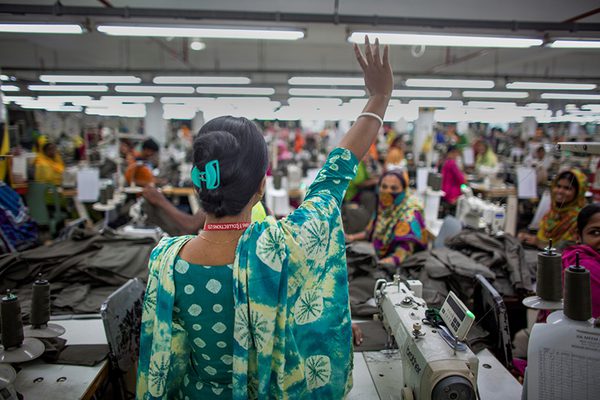The Dhaka Principles at 10 - Reflecting on Lessons Learned and Challenges Ahead in Ensuring Migration with Dignity
12 January 2022

Throughout 2022, IHRB is marking ten years of the Dhaka Principles for Migration with Dignity with guest commentaries from representatives of business, trade unions, civil society organisations, and the UN system that reflect on the continuing importance of each of the twelve individual Principles. These experts are exploring challenges relating to each Principle in turn and discussing how faster progress can be made.
Between 2009 and 2011, the Dhaka Principles were developed through a global consultation process involving businesses, governments, trade unions and civil society organisations convened by IHRB. The aim was to respond to calls for an overarching framework relating to migrant worker rights that would provide an easily understood tool for businesses, based on existing international standards. The result was a simple but powerful tool outlining their responsibilities at each stage of a migrant worker’s journey, from recruitment, through employment, to the end of a contract.
First revealed at a 2011 conference in Dhaka, Bangladesh (hence the name), the Dhaka Principles were officially launched on International Migrant Rights Day in December 2012 with strong support from a range of stakeholders and endorsed by the International Trade Union Confederation and CIETT (now WEC The World Employment Confederation).
Ten years on, the Dhaka Principles have been translated into 26 languages with more planned for 2022. Our partners in civil society confirm that clear and consistent guidance in local languages, both for migrant workers and those who employ them, is key in promotion and implementation of best practice.
Ten years on, the Dhaka Principles have been translated into 26 languages with more planned for 2022.
The Dhaka Principles are being utilised and referenced by a range of organisations. In particular, they have been used by many businesses including Adidas, Thai Union, and Aldi for example, to shape their migrant worker policies.
Other companies, like Burberry, are referencing their commitment to the Dhaka Principles in their Modern Slavery Statements.
Trade associations, such as IPIECA, are highlighting them in guidance to members. Civil society organisations are featuring them in sector guides, Verite for example on Palm Oil, and SOMO on the Textile & Garment Industry. UN agencies such as UNICEF are drawing on the Principles in their own guidance for companies, and business driven initiatives, like the Leadership Group for Responsible Recruitment and its promotion of the Employer Pays Principle, are using them to help inform their individual and joint actions.
Significant initiatives relating to migrant worker recruitment specifically, such as the ILO General Principles and Operational Guidelines for Fair Recruitment and the IOM IRIS Ethical Recruitment Initiative, are also increasingly referencing the Dhaka Principles.
.png)
Despite such significant progress in awareness raising and dissemination, challenges in protecting and respecting migrant worker rights around the world remain significant. Ongoing COVID-driven impacts, growing backlash against migrants in many countries, and threats such as the climate crisis that will drive dramatic increases in future migration all highlight the urgent need for more effective government action to protect migrant workers rights at all levels. And this needs to be in tandem with greater accountability from business, and continuing support for trade unions’ and civil society organisations’ essential work.
Throughout 2022, IHRB will be marking ten years of the Dhaka Principles for Migration with Dignity with guest commentaries each month from representatives of business, trade unions, civil society organisations, and the UN system that reflect on the continuing importance of each of the twelve individual Principles. These experts will be exploring challenges relating to each Principle in turn and discuss how faster progress can be made.
Despite such significant progress in awareness raising and dissemination, challenges in protecting and respecting migrant worker rights around the world remain significant.
We’ll also be launching a new and improved Dhaka Principles website with more accessible guidance, resources, and ways to support them in the coming months.
We welcome additional reflections on the Dhaka Principles and promising actions that can help make them part of mainstream business practice over the next decade and beyond.
This month's expert is IHRB's Neill Wilkins..png) Neill specialises in the human rights challenges faced by migrant workers and the companies who recruit and employ them. He has undertaken a number of initiatives with the apparel, construction and hospitality sectors and the international employment industry to promote responsible recruitment. Neill also helped oversee the development of the Dhaka Principles for Migration with Dignity, a key framework for responsible business practice relating to migrant workers.
Neill specialises in the human rights challenges faced by migrant workers and the companies who recruit and employ them. He has undertaken a number of initiatives with the apparel, construction and hospitality sectors and the international employment industry to promote responsible recruitment. Neill also helped oversee the development of the Dhaka Principles for Migration with Dignity, a key framework for responsible business practice relating to migrant workers.

.png)
.png)



